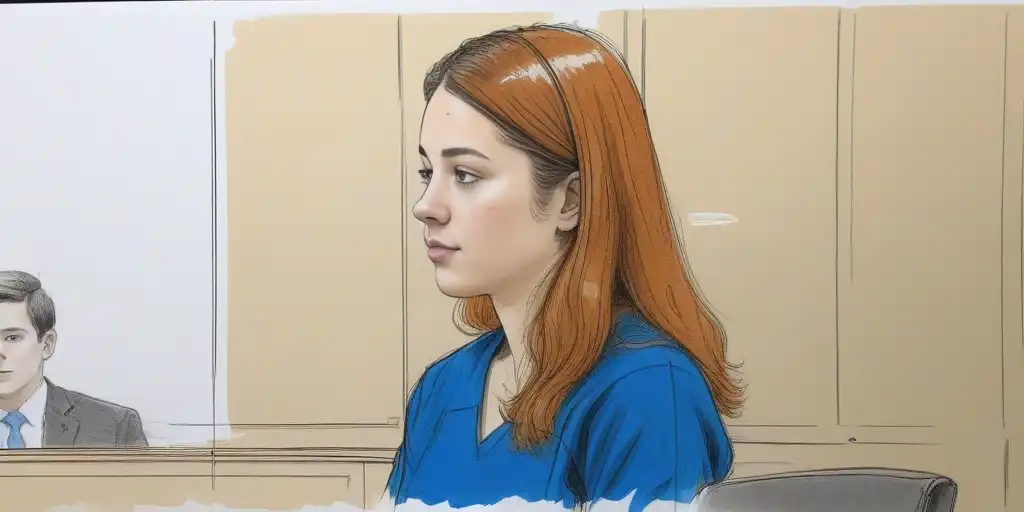Ex-UK Student Pleads Guilty in Racial Assault Case

A University Assault Case: Plea Deal and Sentencing of Sophia Rosing
In a recent court development, former University of Kentucky student Sophia Rosing has pleaded guilty to charges stemming from an assault on campus. This case has garnered significant attention due to the nature of the incident and the subsequent legal proceedings.
Background and Incident Overview
In November 2022, a video surfaced showing Sophia Rosing involved in a physical and verbal altercation with a Black student worker in a university dormitory. The footage captured Rosing hitting the student worker and shouting racial slurs, leading to widespread condemnation and disciplinary actions from the university. Following the incident, the University of Kentucky permanently banned Rosing from its campus.
Legal Proceedings and Charges
Sophia Rosing faced a grand jury indictment on six counts, including assault and public intoxication. During a court session, she entered a guilty plea to these charges. However, as part of a plea deal, the charge of assault in the third degree was amended to assault in the fourth degree, which carries a lesser penalty for minor injury. The details of the plea deal also included recommendations from prosecutors regarding her sentence.
Charges and Plea Deal Details
- Assault Charges: Initially charged with third-degree assault, amended to fourth-degree assault (minor injury).
- Public Intoxication: Pleaded guilty.
- Other Charges: Pleaded guilty to remaining counts.
Sentencing Recommendations
Prosecutors have put forth a recommended sentence that includes a combination of jail time, community service, and a monetary fine. Specifically, the recommendation includes:
- 12 Months in Jail: Reflecting the severity of the offense.
- 100 Hours of Community Service: Aimed at contributing to societal betterment.
- $25 Fine: A monetary penalty.
Rosing is scheduled to be sentenced on October 17.
Impact on the University and Community
The incident and subsequent legal actions have had a palpable impact on the University of Kentucky and its community. The university’s decision to permanently ban Rosing from the campus underscores its stance on maintaining a safe and inclusive environment for all students. The case has sparked discussions on campus about racial discrimination, student conduct, and the measures in place to address such issues.
University Actions and Policies
- Permanent Ban: The university’s immediate response to the incident.
- Policy Review: Potential reassessment of university policies regarding student behavior and racial harassment.
- Community Discussions: Initiatives to foster dialogue and understanding among students and staff.
FAQs
What were the charges against Sophia Rosing?
Sophia Rosing was indicted on six counts, including assault and public intoxication. The charge of assault in the third degree was later amended to assault in the fourth degree as part of a plea deal.
What led to the university banning Sophia Rosing?
The University of Kentucky permanently banned Sophia Rosing following an incident where she was caught on video hitting and shouting racial slurs at a Black student worker in a dormitory.
What are the sentencing recommendations for Sophia Rosing?
Prosecutors have recommended a sentence that includes 12 months in jail, 100 hours of community service, and a $25 fine.
When will Sophia Rosing be sentenced?
Sophia Rosing is scheduled to be sentenced on October 17.
How has the University of Kentucky responded to this incident?
The University of Kentucky has permanently banned Sophia Rosing from its campus and is likely to review its policies to prevent such incidents in the future.
Conclusion
The case of Sophia Rosing serves as a stark reminder of the consequences of racially charged violence and misconduct. The legal proceedings and the university’s firm actions highlight the importance of upholding a respectful and inclusive environment within educational institutions. As Rosing awaits her sentencing, the incident continues to resonate within the University of Kentucky community, prompting ongoing discussions and potential policy changes to safeguard against future occurrences.
